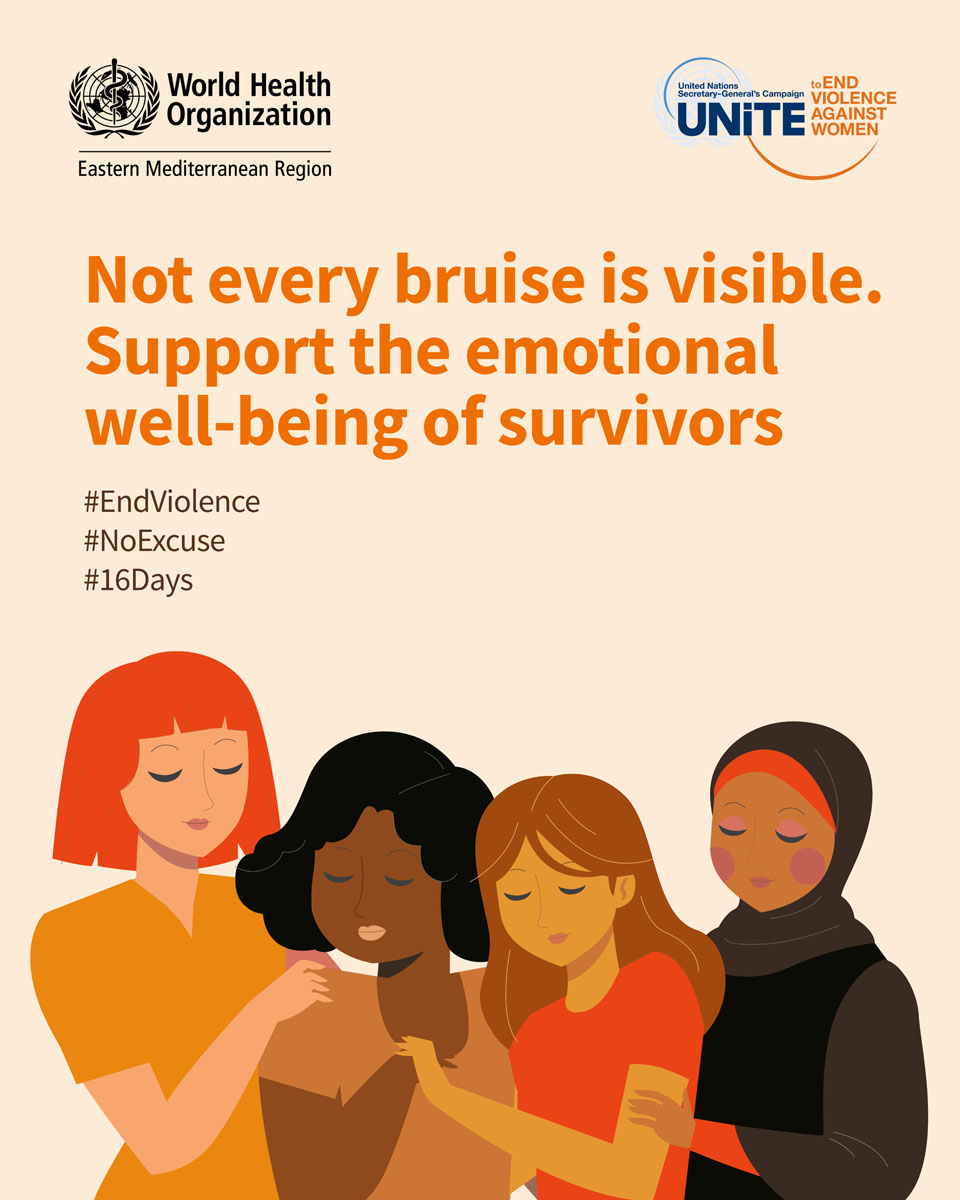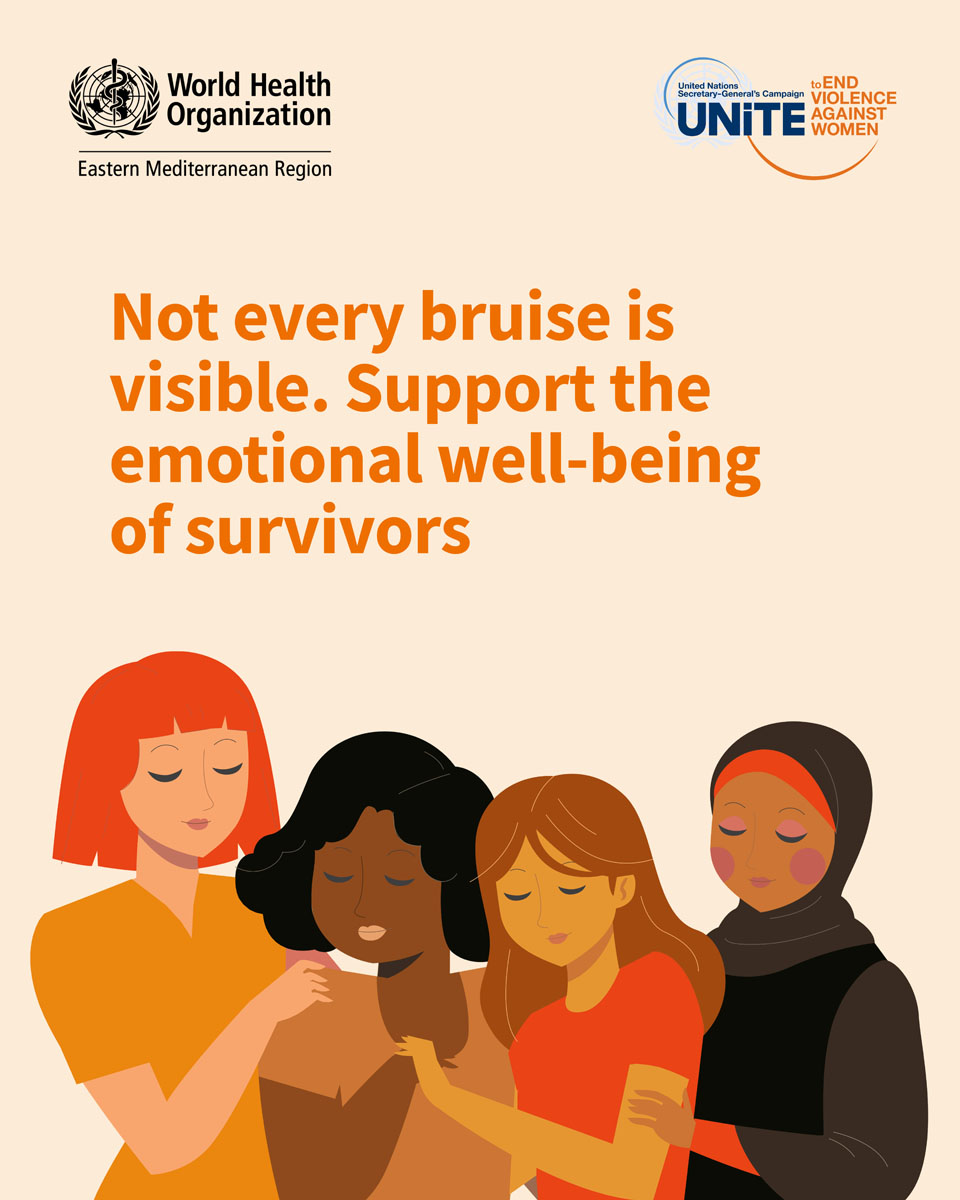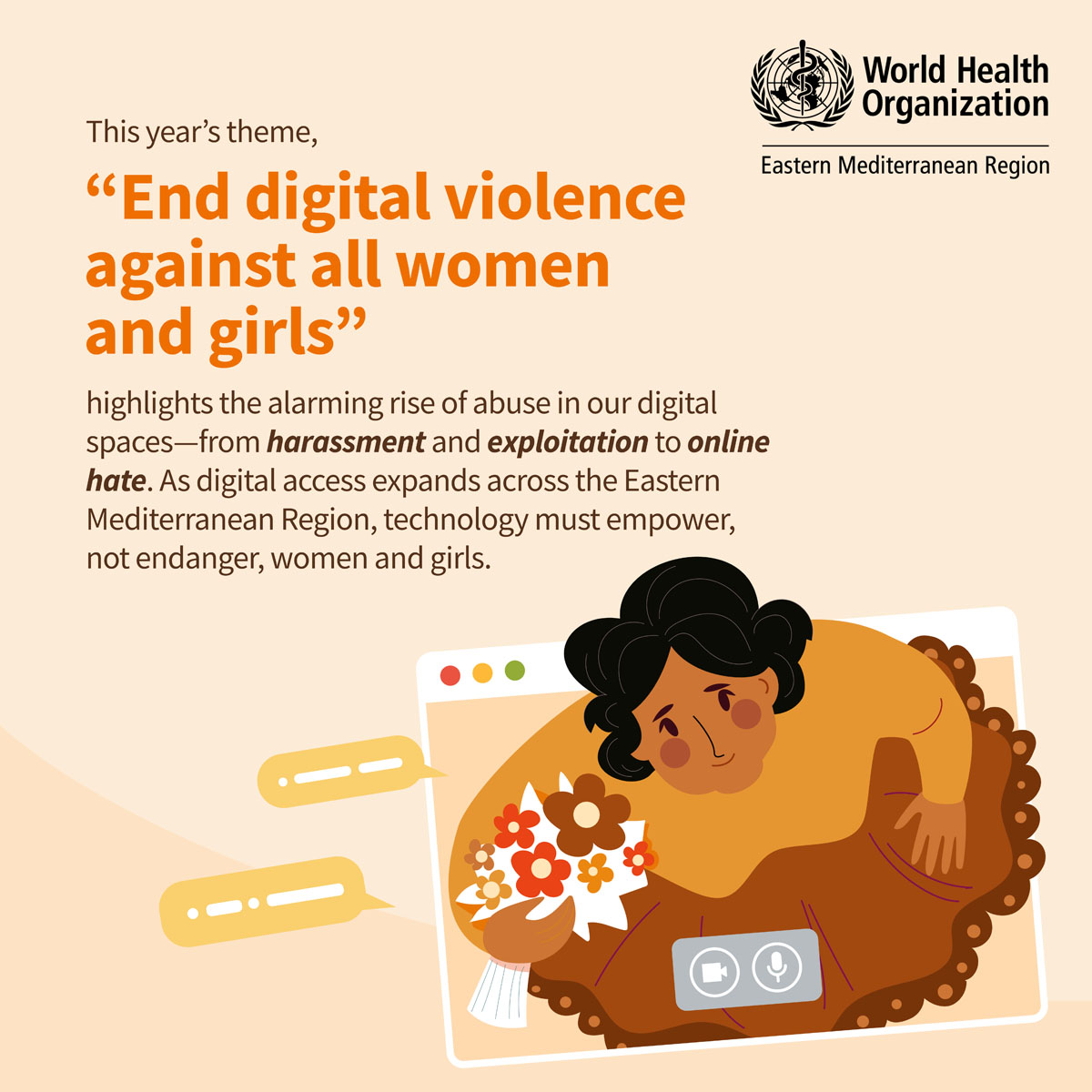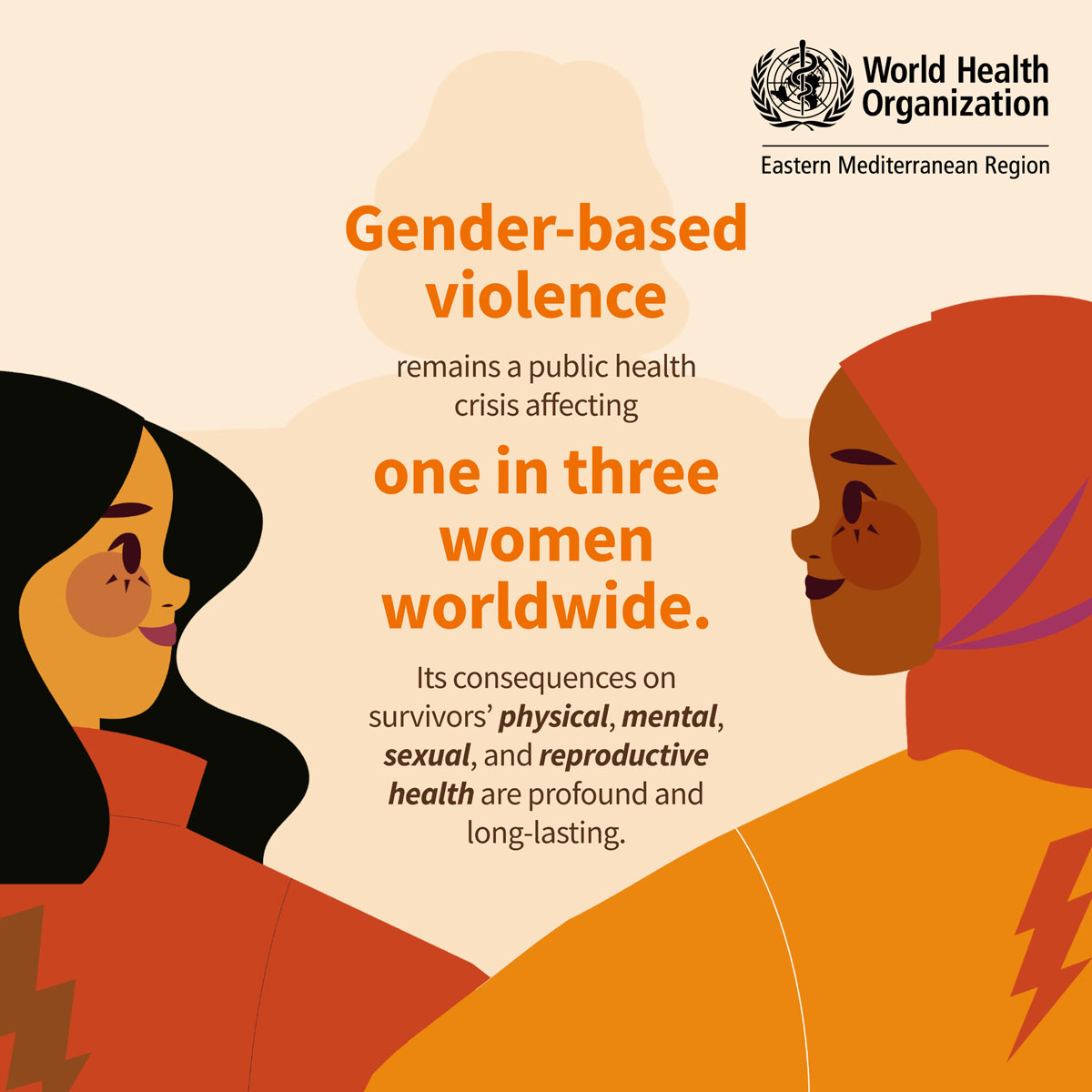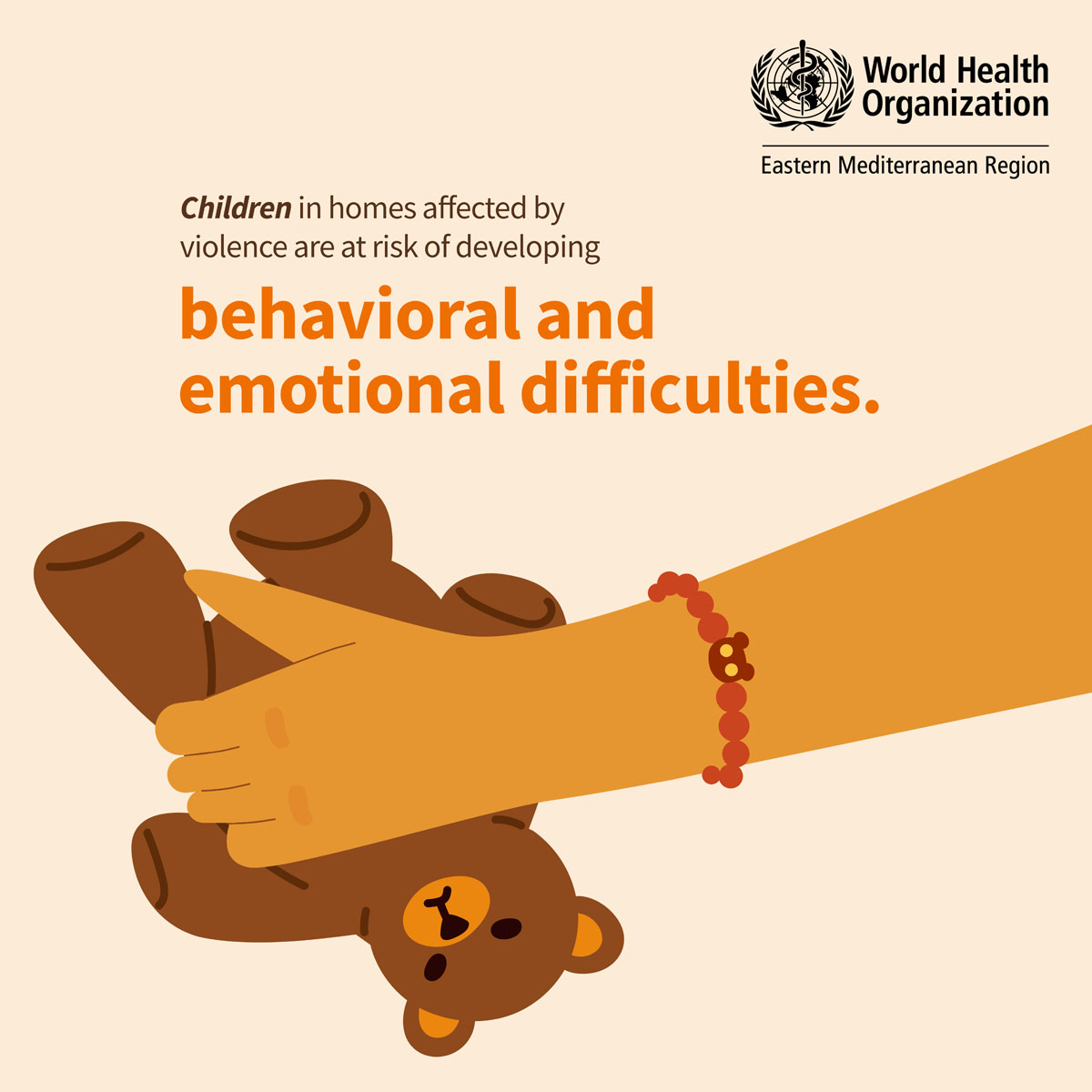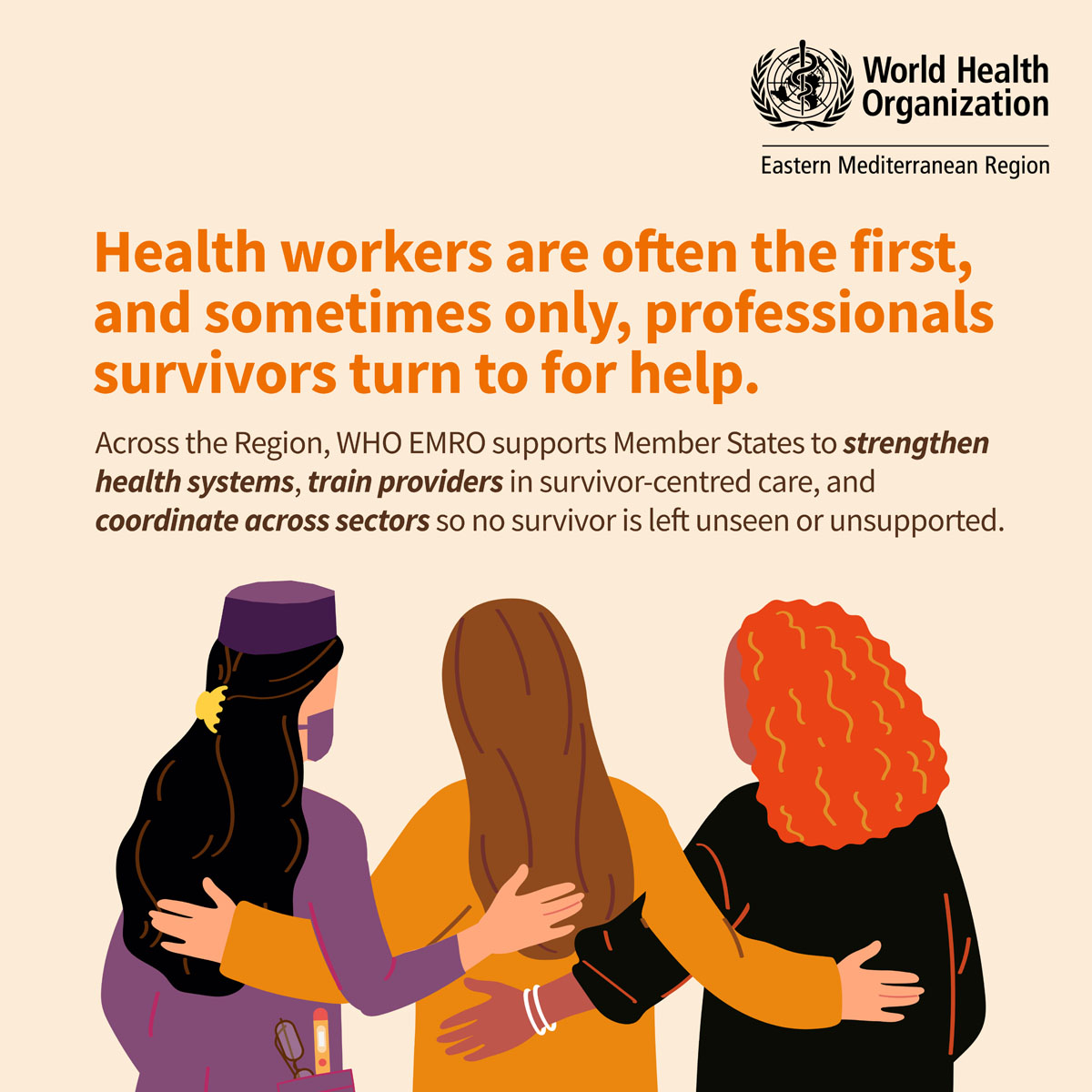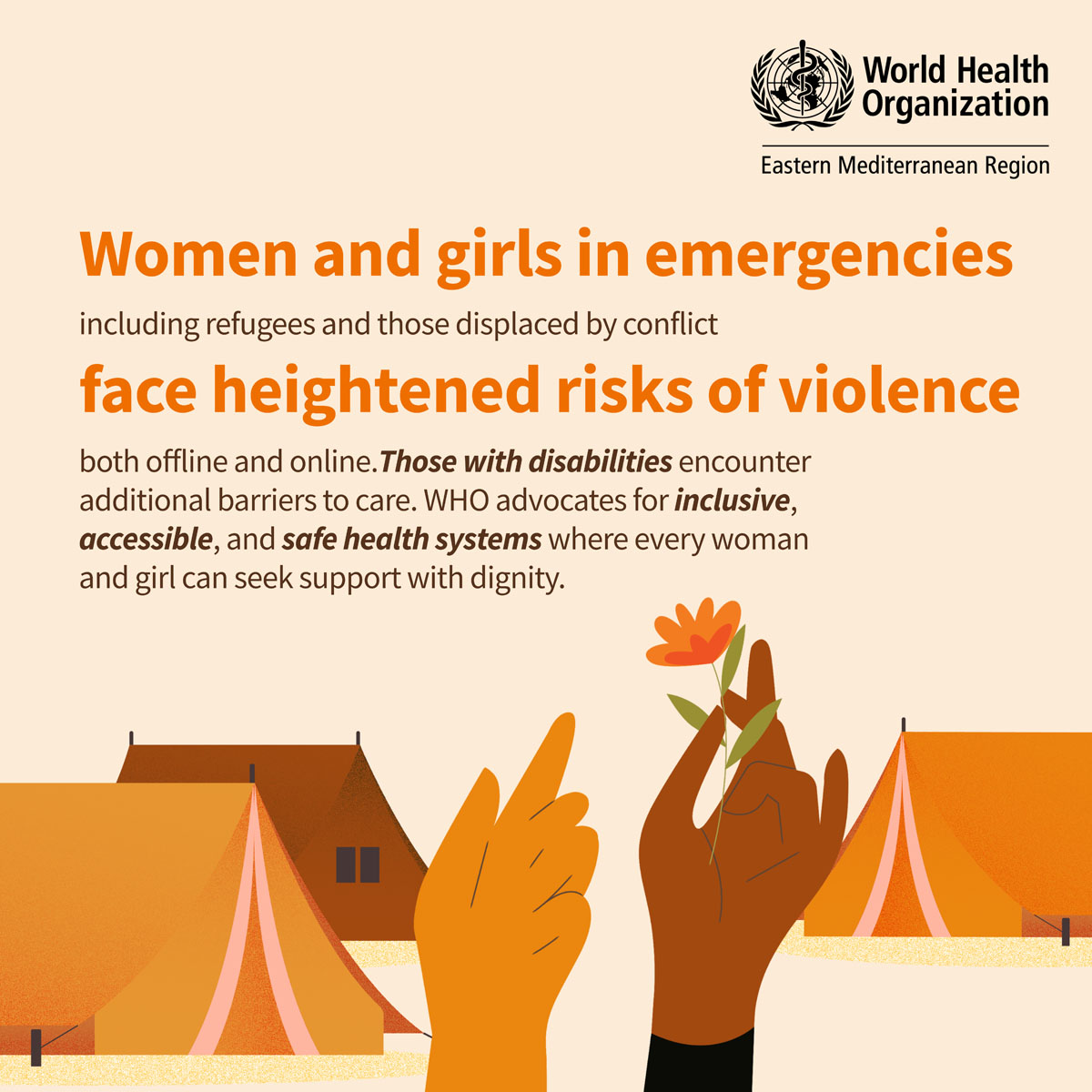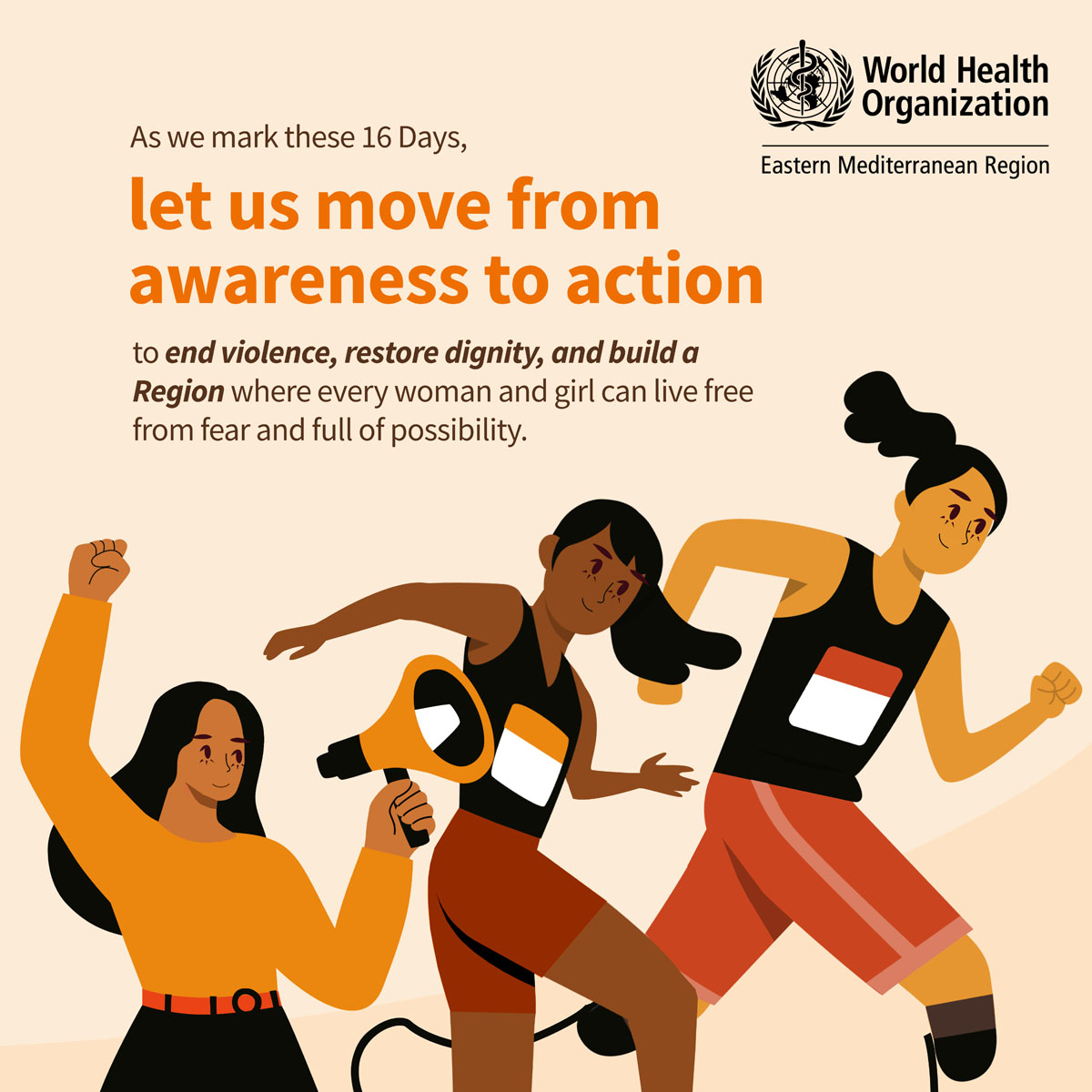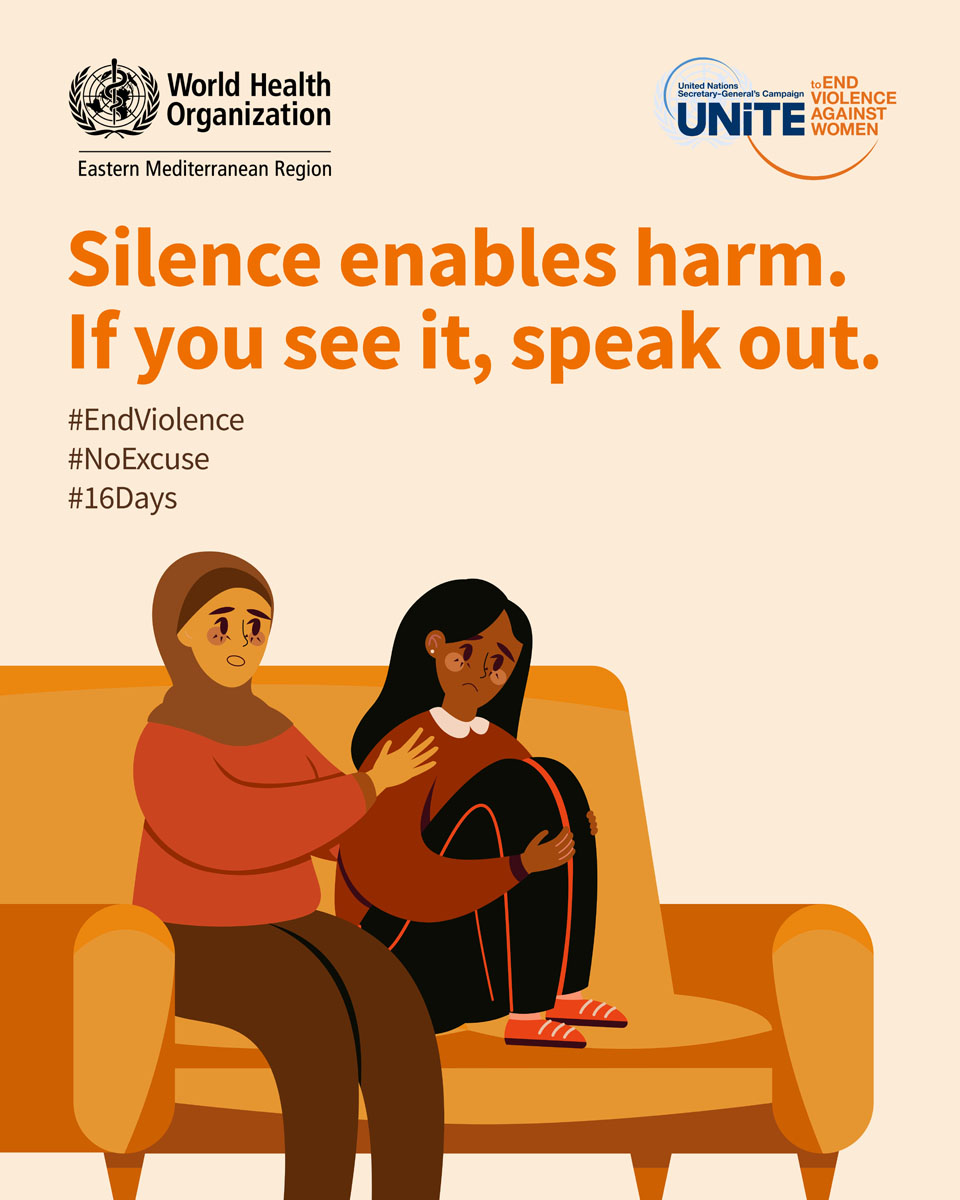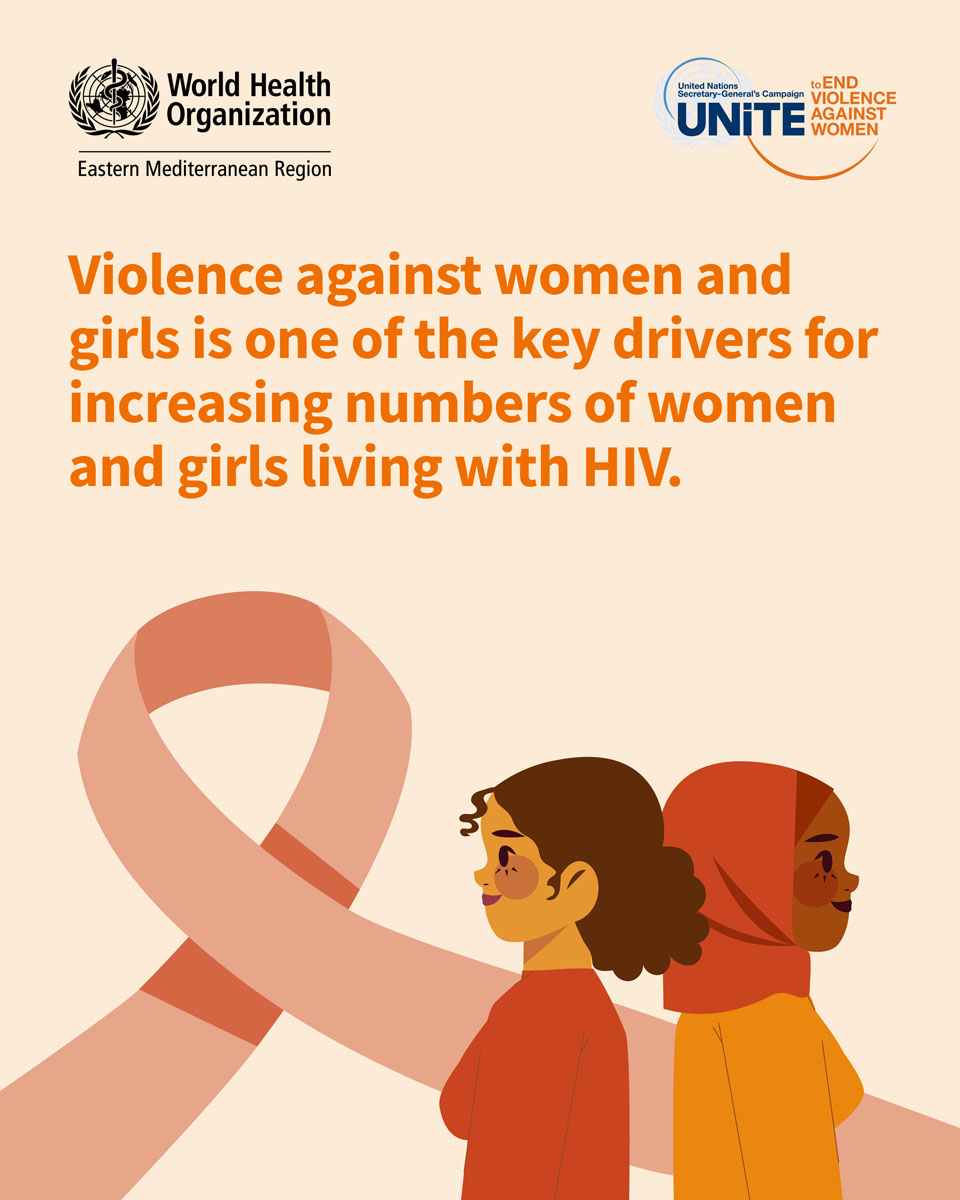End digital violence against all women and girls
25 November to 10 December 2025
The 16 Days of Activism against Gender-Based Violence is an annual global campaign that takes place from 25 November (International Day for the Elimination of Violence against Women) to 10 December (Human Rights Day).
Gender-based violence (GBV) happens in every country and culture, causing harm to millions. Women and girls are most at risk. The challenges are compounded for those living in humanitarian emergencies. Women and girls displaced by conflict, who are refugees or living with disabilities, face even greater barriers to care.
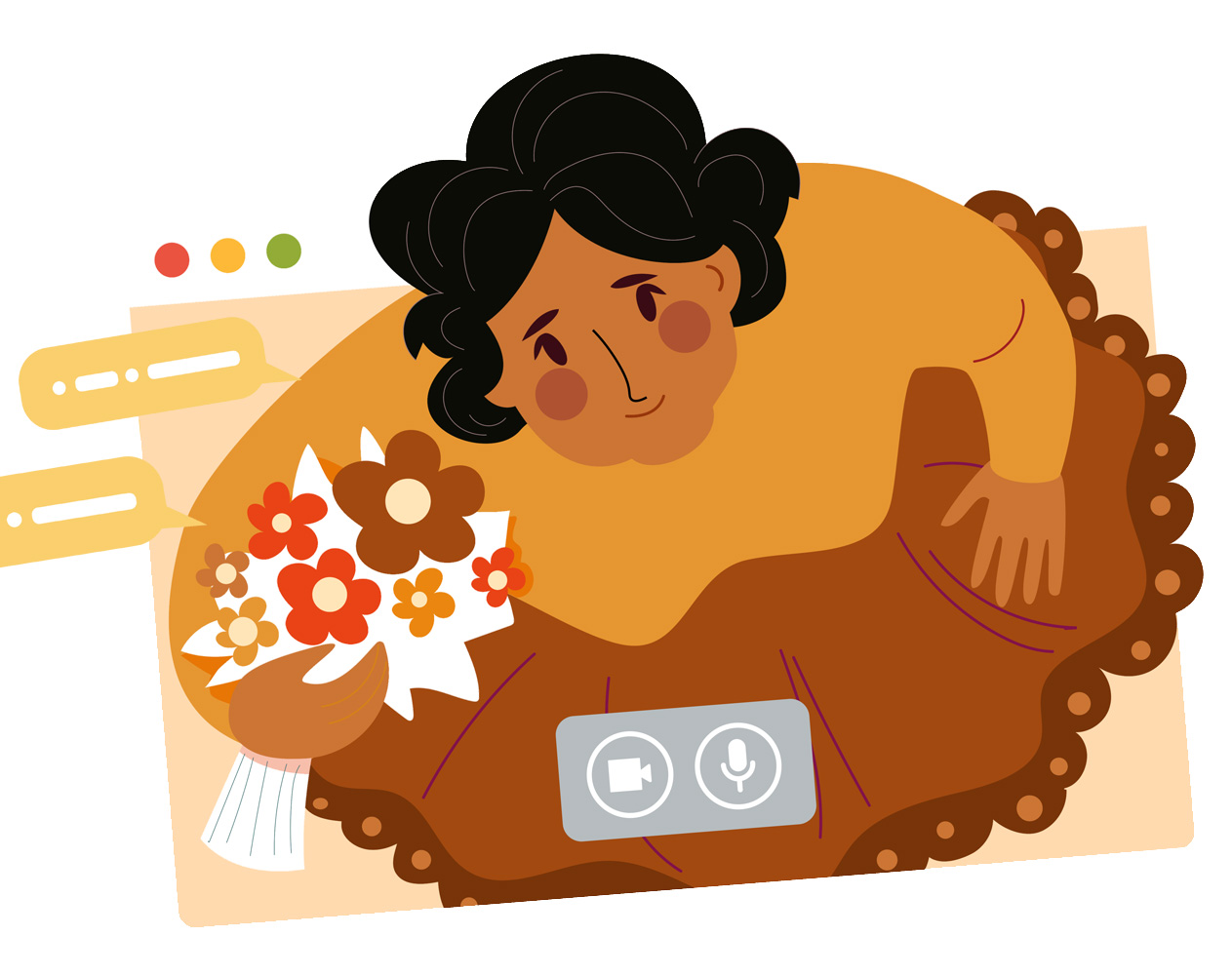
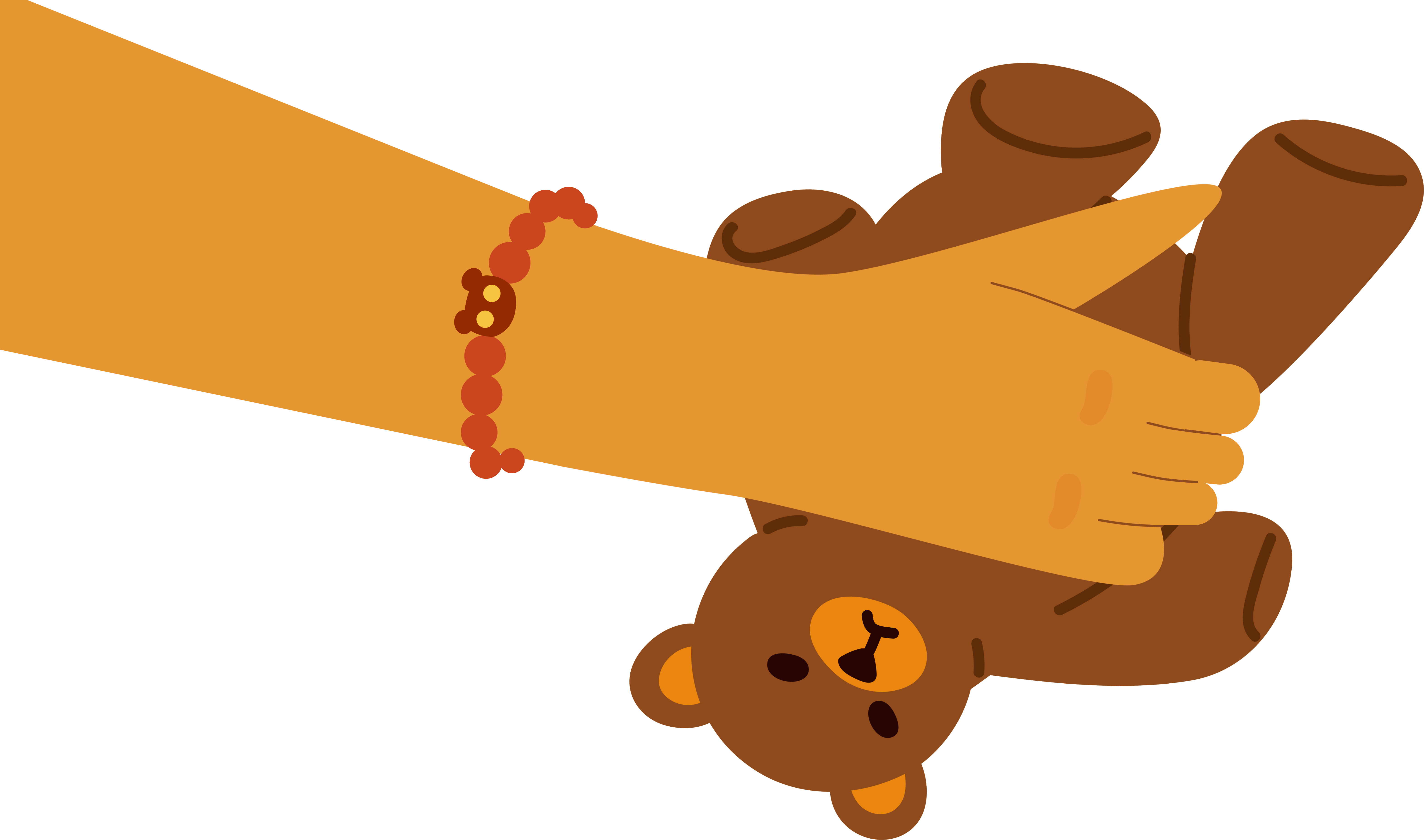 Prolonged and intense conflicts are associated with a rise in all forms of GBV. Multiple intersecting crises – climate induced natural disasters, armed conflict, forced displacement, socioeconomic inequalities and technological shifts – all hamper progress in ending GBV.
Prolonged and intense conflicts are associated with a rise in all forms of GBV. Multiple intersecting crises – climate induced natural disasters, armed conflict, forced displacement, socioeconomic inequalities and technological shifts – all hamper progress in ending GBV.
The impacts of GBV are felt across societies. Survivors can suffer isolation, inability to study/work, loss of income, lack of participation in regular activities and decreased capacity to care for themselves and their children.
GBV affects 1 in 3 women worldwide. It can affect survivors’ physical, mental, sexual and reproductive health. Children who are exposed to violence at home are at heightened risk of developing behavioural and emotional setbacks.
This year’s campaign focuses on ending digital violence. As digitalization expands across the Eastern Mediterranean Region, it is essential that technology is used to empower, not endanger, women and girls.
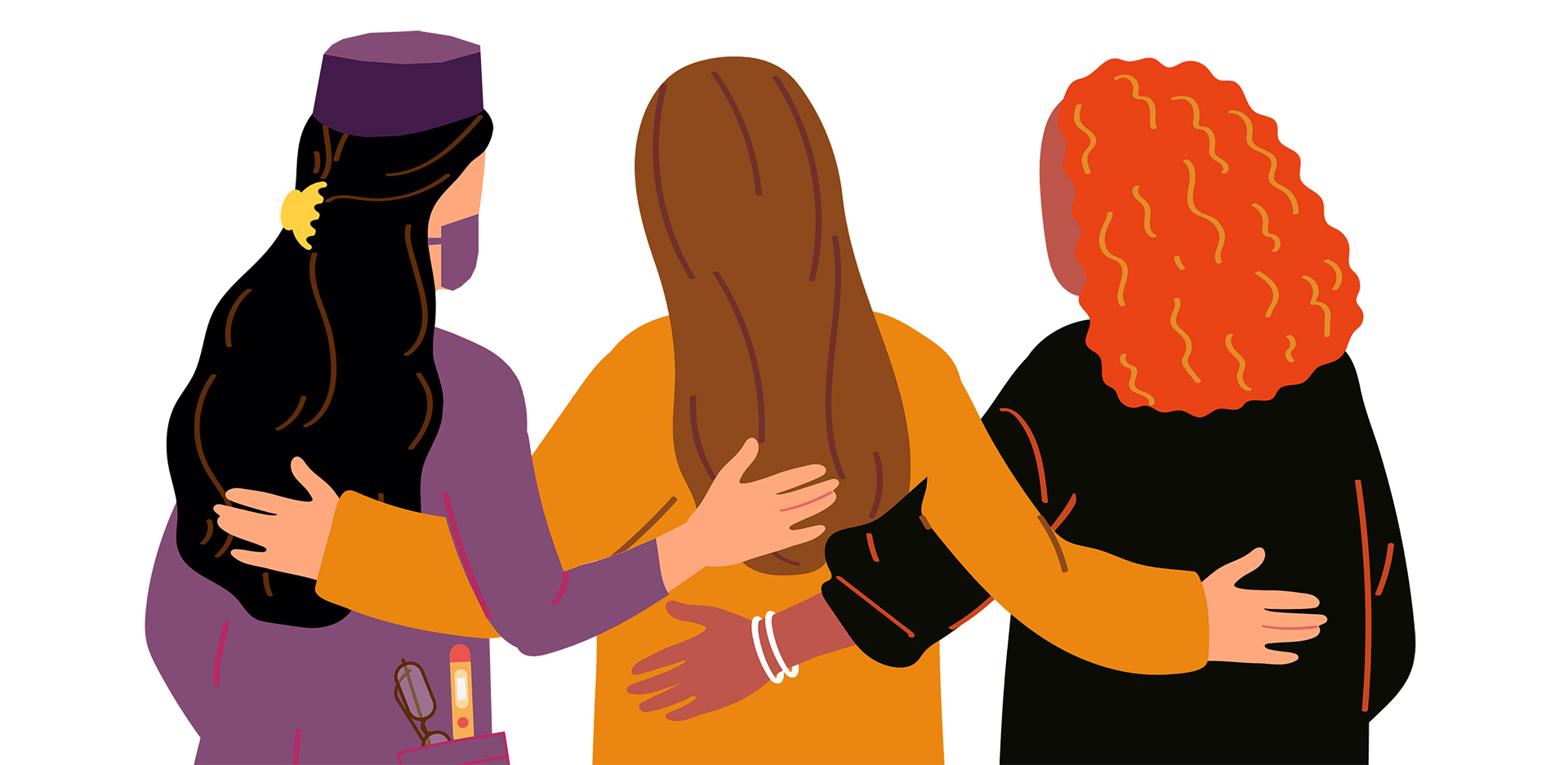 Health services are a critical entry point to address GBV. They are often the first point of care for survivors, and one that they most likely trust. Recognizing the key role of the health sector, the WHO Regional Office for the Eastern Mediterranean is working to support Member States strengthen their response to survivors of violence.
Health services are a critical entry point to address GBV. They are often the first point of care for survivors, and one that they most likely trust. Recognizing the key role of the health sector, the WHO Regional Office for the Eastern Mediterranean is working to support Member States strengthen their response to survivors of violence.
WHO is supporting the development of national policies to address GBV. It is building community awareness, enhancing standards in health facilities by training health professional to provide safe, survivor-centred care, and straightening referral pathways to provide quicker access to lifesaving services.
The 16-day campaign to raise awareness and drive action to end violence against women and girls serves as a stark reminder of the scale of gender inequality and discrimination. Women and girls have the right to live without fear of violence. GBV can be prevented. We must all act to ensure that it is.
Violence against women: 2023 estimates
1 in 3
Globally, nearly 1 in 3 women experience physical and/or sexual violence in their lifetime, a figure that has barely changed since 2000.
8.2%
Globally, 8.2% of women 15 years and older have been subjected to non-partner sexual violence at least once in their lifetime.
In the last 12 months, 316 million women – 11% of those aged 15 or older – were subjected to physical or sexual violence by an intimate partner.
Progress on reducing intimate partner violence has been painfully slow. There has been little change in levels of violence against women – just a 0.2% annual decline over the past 2 decades, making it unlikely that Sustainable Development Goal 5.2 targets on the elimination of all forms of violence against women and girls in the public and private spheres will be reached.
Urgent action needed
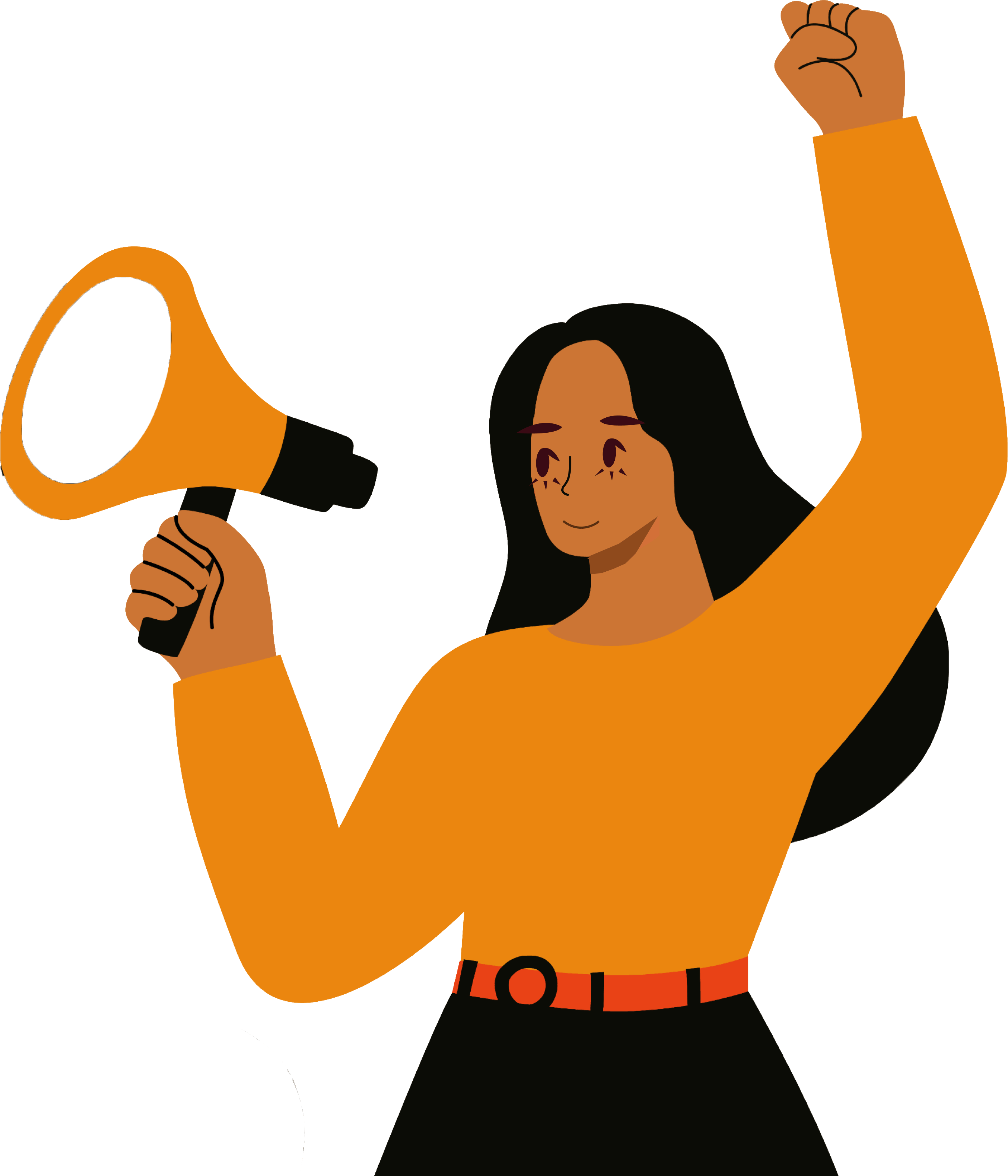 WHO continues to advocate for inclusive and accessible health systems, where every woman and girl – regardless of ability, background or setting – can seek care safely and with dignity.
WHO continues to advocate for inclusive and accessible health systems, where every woman and girl – regardless of ability, background or setting – can seek care safely and with dignity.
To accelerate global progress and deliver meaningful change for affected women and girls, WHO calls for decisive government action and funding to:
- scale up evidence-based prevention programmes;
- strengthen survivor-centred health, legal and social services;
- invest in data systems to track progress and reach the most at-risk groups; and
- enforce laws and policies empowering women and girls.
Related links
Statement by Dr Hanan Balkhy WHO Regional Director for the Eastern Mediterranean on the occasion of International Day for the Elimination of Violence against Women (English - Arabic)
Lifetime toll: 840 million women faced partner or sexual violence









